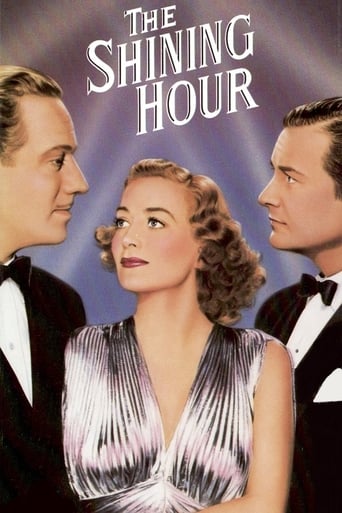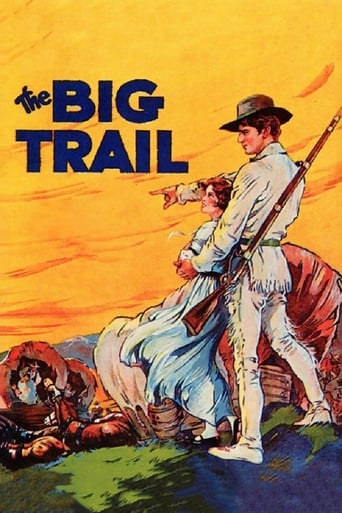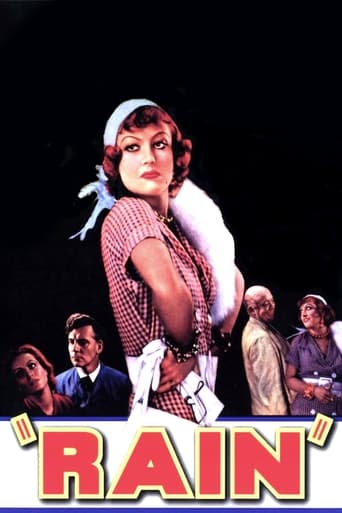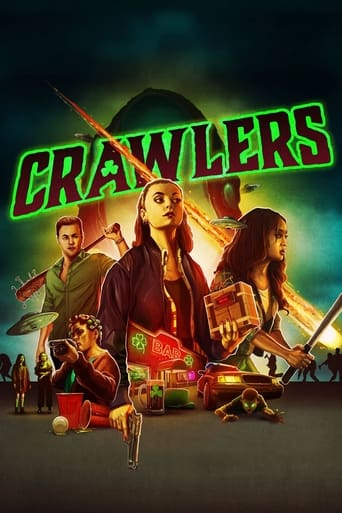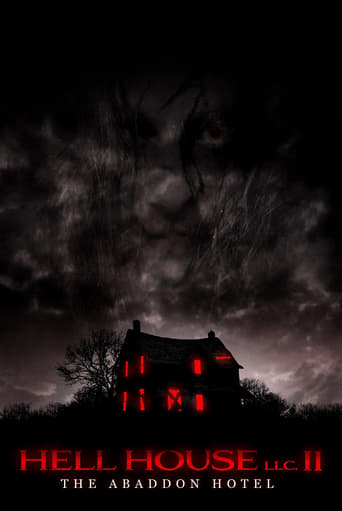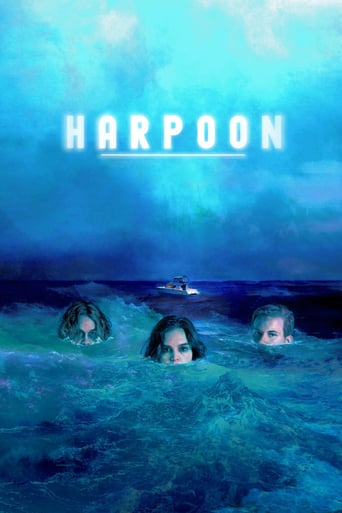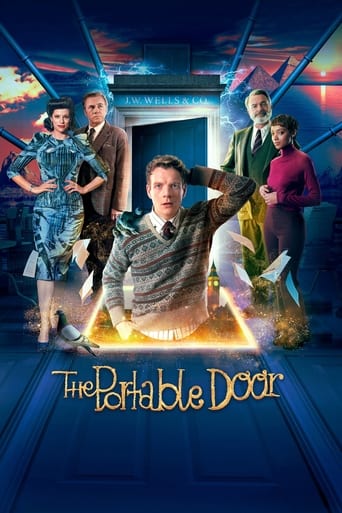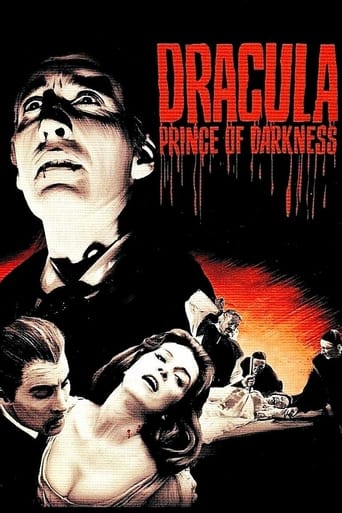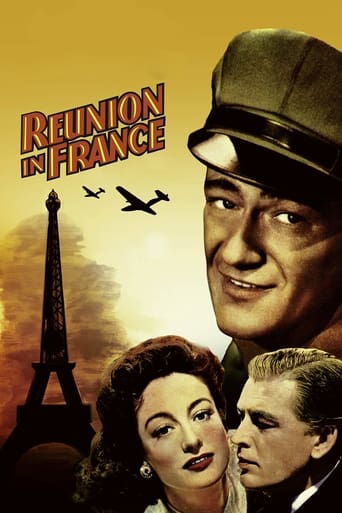


Reunion in France
Frenchwoman Michele de la Becque, an opponent of the Nazis in German-occupied Paris, hides a downed American flyer, Pat Talbot, and attempts to get him safely out of the country.
-
- Cast:
- Joan Crawford , John Wayne , Philip Dorn , Reginald Owen , Albert Bassermann , John Carradine , Ann Ayars


Similar titles



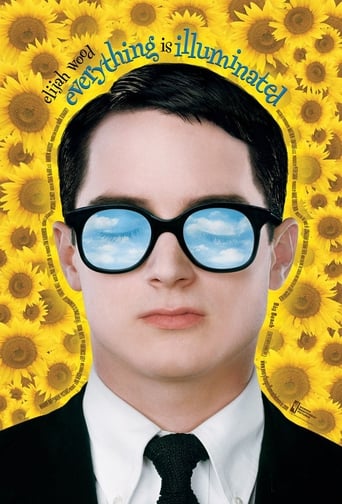

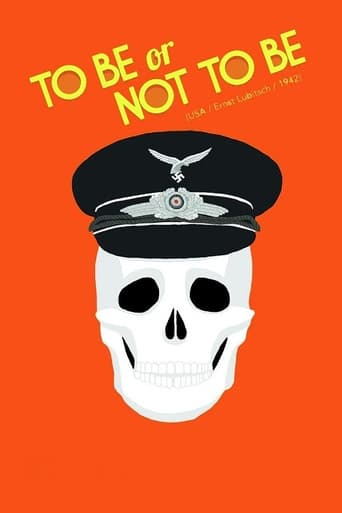
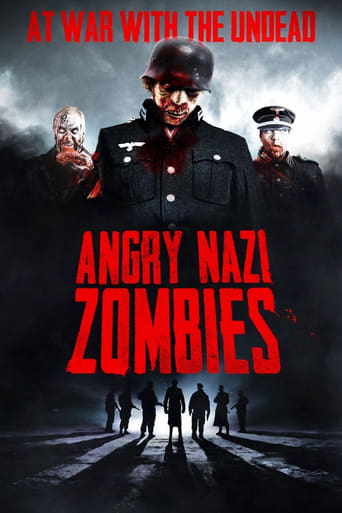


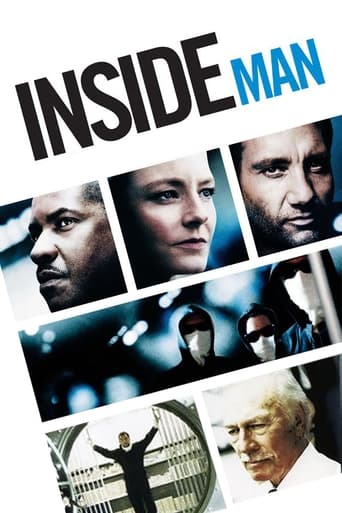
Reviews
Best movie of this year hands down!
Beautiful, moving film.
Through painfully honest and emotional moments, the movie becomes irresistibly relatable
One of the most extraordinary films you will see this year. Take that as you want.
Reunion in France (1942)First important fact: this movie, about the first year of WWII when Hitler took over France, was released a month before "Casablanca." It does not compare in most ways with the drama, the humor, the writing, the music, the velocity, and the legendary actors of the more famous movie. But it is a very good movie with an interesting early pro-American, pro-French message. Joan Crawford crackles as much as she can in a topsy turvy role, going from spoiled and frivolous rich woman Michele de la Becque to (briefly) a refugee to, finally, an ordinary woman fighting with all her heart for France. There are two male actors with important roles and they couldn't be more different. One is Michele's lover and fiancé, played with a cultured perfection by Philip Dorn, a Dutch actor who pulls off the pan-Euro, mostly French aristocrat and businessman well. Opposite him in every way is the homey, tough, humble American who shows up halfway through the film, John Wayne. I don't know if this really makes sense in the film, but I can see it on paper, since Wayne played a non-cowboy merchant seaman in the terrific John Ford film which prefigures this one in some ways, "The Long Voyage Home." He doesn't seem as wily and smart as a fugitive from the Nazis would have to be, behind the lines in occupied Paris, but he at least plays the role of an ordinary American ready to help the French, and this is the political message throughout.In fact, the movie borders on a brilliant propaganda device, putting message ahead of plot now and then, just perceptibly. Crawford is so good even her speeches make a convincing case, and I'm assuming American audiences cheered her on by December of 1942 when it was released (on Christmas day). The scenes of the Germans taking over Paris are always horrifying, and they are again here. There is even a deliberate homage to Soviet director Eisenstein when a baby carriage runs off after the mother is killed by gunfire.But back to "Casablanca." It's an interesting problem to solve, feeding the American audience worried about the war and about U.S. involvement. Because Hollywood was both a symptom of public opinion and a shaper of it, and these are two rather different kinds of films with very similar messages. Director Jules Dassin, who is not French but American, had just started making films in 1941, and there is a sense of expertise at the expense of intuitive magic. "Reunion in France" is strong, smart, and convincing. But it doesn't sizzle or build the aura of the time like it could. And yet, in its defense, it has no perspective at all on the events, since it was made while they were unfolding, even before they were unfolding since it has to anticipate to some extent how the film will settle six months after being written and shot. Watch it. It's really good.
This 1942 movie arouses your patriotic instincts. In this good vs. the apparent overwhelming evil, chalk one up for the good guys. The heroine, played by Joan Crawford, is convincing in her portrayal of a spoiled, pompous rich woman who becomes a patriot when her France is occupied by Nazi Germany. She is allowed to live in a one room, ground floor apartment of her mansion, taken over by the Nazi military. She is the fiancé of a supposed Nazi sympathizer, (who used to be a French patriot). She takes in an American flier (John Wayne) and houses him in her one room apartment. She joins the underground efforts to get the American flier back to his base in England. This movie is typical of cinemas of that era and is as believable as most and better than some others. The heroine reminds me of the Ingrid Bergman character in Casablanca. She also has to make hard choices. Will she stay and fight for her France? Will she go to England with the flier she has saved from capture? Will she be loyal to the man she loves, even though he appears to have radically changed from patriot to Nazi collaborator? The choices she makes are inspiring and patriotic. You, of course want her to stay and fight or do you want her to leave with her new found love, the American flier? The end is very satisfying. After the movie is over, you will want to join with others in saying. Viva la France!
If Joan Crawford had hopes of reviving her career at MGM following the successes of THE WOMEN and A WOMAN'S FACE, she was disillusioned once again and it shows in this badly produced Hollywood melodrama posing as a war film with its "patriotism" message. It's probably not her fault that she was being given such poor material - or better yet, material more suited for any of the given rising starlets of her time - it was clear that MGM wanted her out; Norma Shearer and Greta Garbo had reaped the benefits of the better scripts the previous decade and had retired, and actresses such as Greer Garson were on the rapid rise and literally forcing her out, and at thirty-eight, the Adrian seams were coming apart leaving her basically naked for the savaging. But, professional as she reportedly was, she made this film about a Frenchwoman (with an American accent and fabulous dresses) coming to terms with her own patriotism once Nazi Germany invades Paris. It's just too bad that nowhere is there really an "antiwar sentiment" throughout the film, full of stock footage, bad editing, and fluff; if anything, the duplicity of her leading man (Phillip Dorn) as he portrays a collaborator to the Nazi's (but then it's revealed he's working covert, probably to add to the suspense) and then the appearance of John Wayne, of all people, playing an American aviator, was only for the sake of playing the worn out love triangle her films endlessly presented, and by the time this movie came around, it was basically over. One more film, ABOVE SUSPICION, would have her cancel out her contract to MGM and begin her Warner Bros. phase, which would be more productive.
I found this movie entertaining for 1 reason, to see Joan Crawford playing a Frenchwoman (unbelievable) who starts out the movie as a frivolous, spoiled mistress of a French businessman. Then while on holiday in the south of France the Nazi's invade and then Joan learns about patriotism and courage. She runs from the Nazi's (dressed of course to the nines-this was MGM in it's heyday) and ends up back in Paris, to find it occupied. From that point on the movie becomes convoluted, she fights the Nazi's, falls in love with John Wayne (terribly miscast as an RAF flier) and the propaganda machine that was Hollywood during WWII goes into full force. It was ridiculous, but is interesting to look back and see how Hollywood helped the war effort. And Joan is never more lovely to look at than in this movie.

